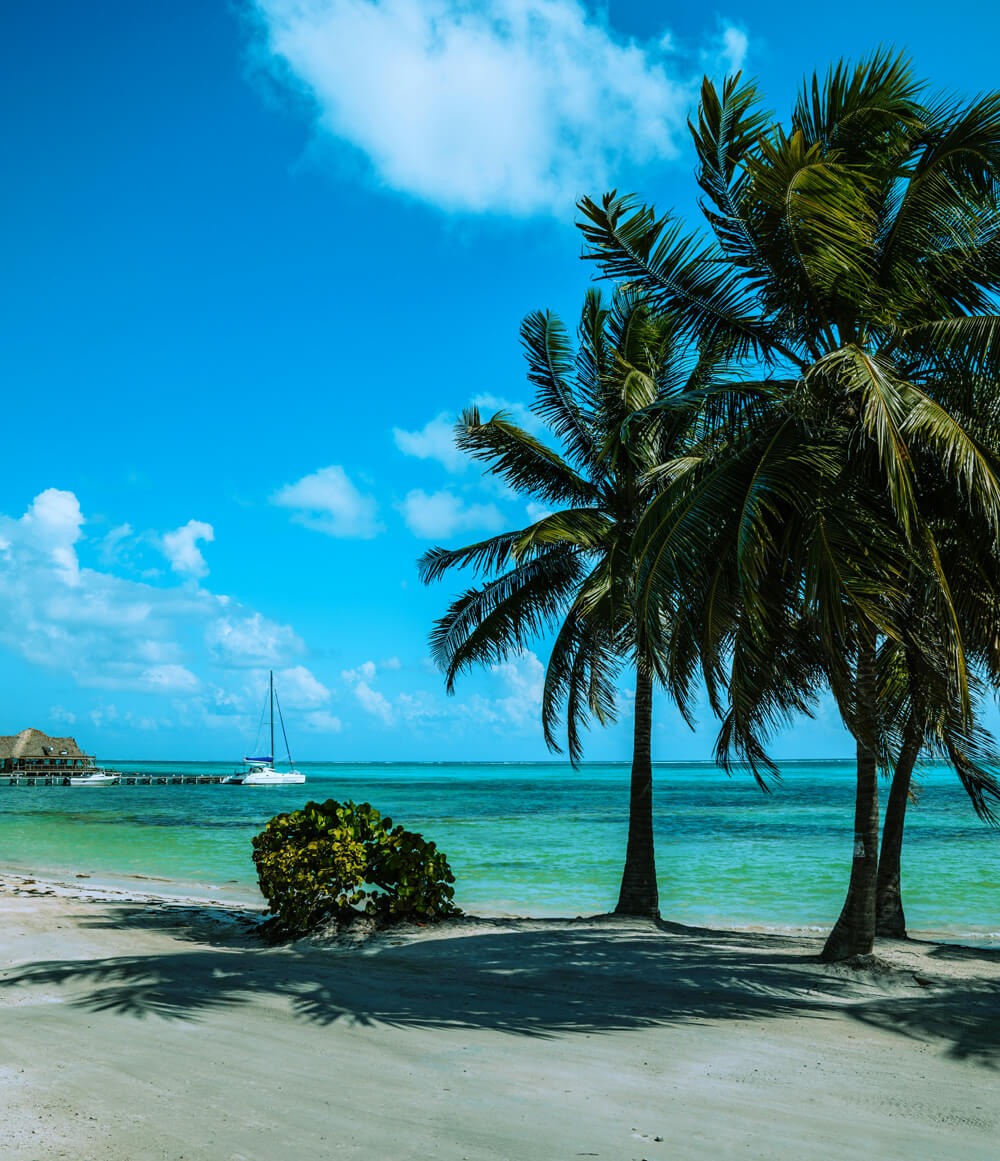Safeguard Your Property With
Asset Protection
Put your assets out of the reach of creditors, bankruptcy, legal opponents, judgments, and divorce. We are experts in the asset protection industry dedicated to protecting your wealth.

involved in offshore asset protection since The
1980s
40+
Years of combined experience in the asset protection industry
What Is Offshore Asset Protection?

Offshore asset protection refers to the legal strategy of placing assets in foreign jurisdictions—outside of your home country—to safeguard them from risks such as lawsuits, creditors, or political instability.
This is typically done through structures like offshore trusts, LLCs, and international bank accounts.
Key Purpose:
Lawsuit Protection: Offshore structures in specific jurisdictions such as the Cook Islands and Belize, make your assets untouchable for creditors and legal opponents.
Offshore Trusts Are Much More Effective Than Domestic Trusts
Offshore trusts are much more powerful in protecting assets versus their domestic counterparts.
Domestic trusts are ultimately subject to U.S. court rulings, as a result, there is significant case history of domestic trusts being pierced by the courts.
Therefore, domestic trusts do not offer true asset protection, which is why high net worth individuals seek to go offshore.

All Offshore Trusts Are Not Created Equal
For example, an asset protection trust can be created in the Bahamas.
But foreign judgments can be enforced by Bahamian courts.
The Cayman Islands is another known jurisdiction for offshore trusts.
However, Cayman Island trusts have a 6-year statute of limitations on fraudulent transfers, which is far longer than other offshore jurisdictions.
Belize and the Cook Islands are the ONLY jurisdictions that should be considered for high net worth individuals that demand the highest level of asset protection.
A properly structured asset protection trust in either of these countries will put your assets out of the reach of creditors, bankruptcy, legal opponents, judgments, and divorce.
Among the many benefits of an asset protection trust in Belize and the Cook Islands are the following:
Do not recognize foreign judgments
Have short statute of limitations
Privacy is a priority
Offer protection in times of legal duress
Give Yourself Peace of Mind With a Belize Trust

In Belize, specialized asset protection legislation began emerging in the early 1990s:
1990: The International Business Companies (IBC) Act was enacted, laying the foundation for offshore corporate asset protection.
1992: The landmark Trusts Act (Chapter 202) was passed, with asset‑protection provisions (commonly called the "Asset Protection Trust Act") built into Section 7, effectively shielding trust assets from foreign creditor claims. That same year, Belize also began registering international trusts.
Since these initial laws, Belize has enhanced the framework with updates—such as amendments in 2007 and 2013 for trust registration, and additional provisions in 2018 in response to international regulatory standards.
Key Benefits of a Belize Trust
1
Strong Asset Protection Laws
Non-recognition of foreign judgments: Belize courts do not recognize foreign court rulings (e.g., U.S. judgments). Creditors must start a new case in Belize.
High burden of proof for creditors: Claimants must prove beyond a reasonable doubt that the trust was created with intent to defraud, which is a very high threshold to overcome.
Immediate protection: Trusts in Belize become effective immediately (no waiting period or delayed protection like in some jurisdictions).
2
No Statute of Limitations
As long as the trust was created properly, the courts in Belize will not consider any claims of fraudulent conveyance.
3
Confidentiality & Privacy
Trusts are not part of any public registry.
Trustee and beneficiary details are kept confidential by law.
Belize does not participate in automatic tax information exchange agreements (e.g., CRS) unless required by FATCA for U.S. citizens.
4
Tax Neutrality
Belize imposes no local income tax, capital gains tax, inheritance tax, or withholding tax on the trust or its beneficiaries.
For U.S. citizens and other high-tax jurisdictions, trust income must still be fully reported (e.g., IRS Forms 3520/3520-A, FBAR).
5
Ease of Setup and Maintenance
Quick to set up: Typically established within a few weeks.
Lower cost than Cook Islands
Less regulatory red tape and more flexible trust arrangements.
6
Flexible Trust Design
Can be discretionary, fixed, or purpose trusts.
Common uses include:
Asset protection
Estate planning
International investing
Holding intellectual property or crypto assets
7
Duress Clause / Trustee Takeover
Includes a duress clause: If you're pressured by a court or government to repatriate funds or break the trust, the trustee takes over full control, and you’re legally unable to comply.
This protects you from being held in contempt or facing penalties for something you legally can’t do.
8
Trustee Options
Trustees can be:
Professional licensed trust companies in Belize.
Or even private trustee structures, depending on goals (though professional trustees are better for asset protection).
Safeguard Your Wealth With a Cook Islands Trust

In the Cook Islands, the legal framework for offshore asset protection trusts was formally introduced by amending their existing trust legislation:
1984: The International Trusts Act was enacted, laying the foundation for international trusts
1989: Major amendments were made to specifically transform the Act into a pioneering asset protection regime—making Cook Islands the first offshore jurisdiction to enact such laws. Key protections introduced in 1989 included allowing settlors to be beneficiaries (“self‑settled trusts”), abolishing the Statute of Elizabeth (fraudulent transfer rules), disallowing recognition of foreign judgments, enforcing high burdens of proof, and imposing short limitation periods (two years, possibly one) for creditor claims.
Subsequent Amendments: The Act was further updated in 1991, 1994, 1996, and later—each time bolstering privacy, creditor protection, and flexibility in trust terms
Benefits of a Cook Islands Trust
1
World-Class Asset Protection
Strongest trust law jurisdiction: The Cook Islands has been battle-tested in U.S. and international courts and consistently protects trust assets from lawsuits, divorce, bankruptcy, and judgments.
No recognition of foreign judgments: U.S. court rulings (or those from most other countries) are ignored—creditors must start a new case in the Cook Islands under its local laws.
High burden of proof for creditors: Creditors must prove “beyond a reasonable doubt” (a criminal standard) that the trust was set up to defraud them.
2
Statute of Limitations on Claims
Only 1–2 years from the time the trust was funded or the claim was known, whichever is earlier.
After that, creditors cannot challenge the transfer of assets into the trust—even if they win a case elsewhere.
3
Duress Clause / Trustee Takeover
Includes a duress clause: If you're pressured by a court or government to repatriate funds or break the trust, the trustee takes over full control, and you’re legally unable to comply.
This protects you from being held in contempt or facing penalties for something you legally can’t do.
4
Legal Flexibility
Trusts can be discretionary or purpose-based, and may benefit:
Family members
Future generations
Charitable causes
5
Tax-Neutral Environment
The Cook Islands has no local income tax, capital gains tax, or estate tax on trust assets.
Trusts are tax-neutral, meaning all taxation is based on your home country (e.g., U.S. IRS rules).
U.S. persons must disclose foreign trusts and pay tax on trust income (Form 3520/3520-A).
6
Confidentiality
Trust records are not public.
Trustee firms in the Cook Islands are bound by strict privacy laws.
Beneficiaries’ names and trust activities are not disclosed unless required by law (e.g., to IRS via filing).
7
Estate Planning & Wealth Preservation
Assets are protected for future generations.
Avoids probate and can help preserve family wealth across borders.
Can be designed to include spendthrift clauses to protect beneficiaries from poor financial decisions.
How Can We Help You?
Offshore Asset Protection Advisors is a collective of experts in the asset protection industry.

Our combined experience in the asset protection industry exceeds 40 years, and we have been involved in offshore asset protection since its inception in the late 80s.
Our team is exclusively focused on properly forming and registering offshore trusts in Belize and the Cook Islands, as these two jurisdictions offer true asset protection by putting your assets out of the reach of creditors, judgments, and legal opponents.

With longstanding relationships in Belize, the Cook Islands and international banks, we can create an offshore structure that best suits your needs and provides you with peace of mind.
Given our vast experience, we have the knowledge to navigate even the most complex cases.
Our goal is to not only safeguard your assets, but to also provide you with a structure that will allow your assets and wealth to grow.
With our dedication to protecting and preserving wealth, we have developed an impeccable reputation and have been the trusted advisors for a variety of high net worth individuals including politicians, household names, and entrepreneurs.
Speak With an Expert
Fill out the form below for a free consultation with an experienced asset protection advisor.


Frequently Asked Questions
What Is Offshore Asset Protection?
Offshore asset protection refers to the legal strategy of placing assets in foreign jurisdictions—outside of your home country—to safeguard them from risks such as lawsuits, creditors, or political instability. This is typically done through structures like offshore trusts, LLCs, and international bank accounts.
Who Needs Offshore Asset Protection?
Anyone with a net worth of at least USD $1MM should strongly consider protecting their assets with an offshore trust. Given that wealth attracts attention, as a person's wealth increases, so does the likelihood of being faced with a lawsuit. When it comes to litigation and protecting assets, it is always better to be proactive as opposed to reactive. Having the right offshore structure in place will provide complete peace of mind.
What Are The Best Offshore Jurisdictions For Asset Protection?
Belize and the Cook Islands offer the most robust asset protection in the world. Both countries have strong case law history, do not recognize foreign judgments, and have implemented specific laws that focus exclusively on asset protection.
What Type Of Assets Can Be Held In An Offshore Trust?
A variety of assets can be held in an offshore trust. Assets include LLCs, cash, bank accounts, investment accounts, cryptocurrency, real estate, intellectual property, private jets, exotic cars, yachts, and business inventory.
Have More Questions? Contact Us.

Contact
Copyright © 2025. All Rights Reserved by Offshore Asset Protection Advisors.